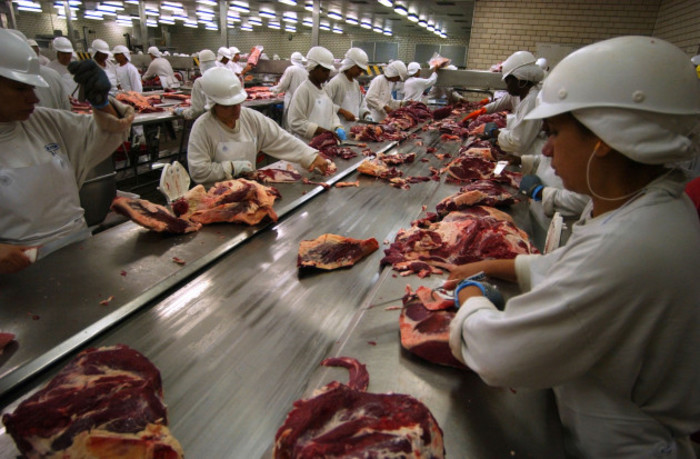Finance says we don't want 'brass-plate operations' after a meat giant's no-tax move
Brazilian firm JBS’s plans to shift €30 billion in assets to Ireland have been branded “a complete joke”.
THE DEPARTMENT OF Finance has said it “does not encourage” deals like Brazilian meat-processing giant JBS’s decision to shift its parent company to Ireland.
The controversial move will involve the company shifting €30 billion in assets to the Republic, however it will be run out of the UK and will also be tax resident offshore. Last year, JBS bought Northern Ireland-based poultry producer Moy Park for $1.5 billion.
A spokesman for the department dismissed the idea that the move would mean jobs and investment for the country, adding:
“Ireland does not encourage the location of brass-plate operations. We only have and want real substantive foreign direct investment – the kind that brings real jobs and investment into Ireland.”
The Brazilian company, the world’s largest meatpacker, is the latest multinational company to take advantage of Ireland’s favourable tax environment.
However, like many other multinationals drawn to Ireland, the funds for the newly-created Irish company, JBS Foods International, will be managed abroad.
The finance spokesman said Ireland was working with other countries to address concerns over so-called “inversions”, which allow multinationals to channel profits through low-tax jurisdictions, as it did not have the power to prevent such deals unilaterally.
“The Irish government has made clear that we would welcome any changes made by the other administrations to address inversions,” he said.
 A JBS production line in Brazil
A JBS production line in Brazil
‘Total joke’
Economist Jim Power branded the move “a total joke” that would bring further unwelcome scrutiny of Ireland’s 12.5% corporation tax.
“The bottom line is that this is the sort of business Ireland should be running a mile from. The government should be working harder to prevent deals such as this; they are bad news for Ireland.”
It is also unclear what effect the €30 billion transfer will have on Ireland’s economic growth data, as inflows as a result of several corporate inversion deals has already skewed Irish economic growth statistics.
Just months ago, the Central Statistics Office announced a national growth of 26.3% for 2015, which exceeded projections of 6.8%, as well as all of China’s annual growth rates since 1989, which left people ridiculing the figure as “leprechaun economics”.
With additional reporting from Gráinne Ní Aodha.






